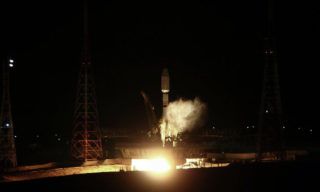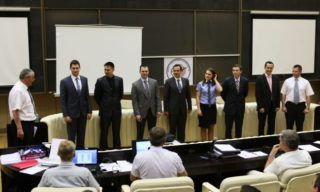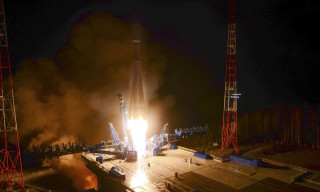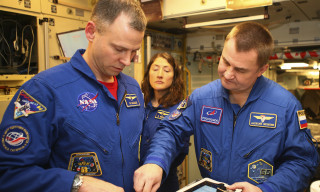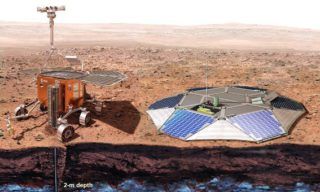In accordance with the International Space Station flight schedule, on February 17, 2021 at 06:26:47 UTC, the Progress MS-16 cargo ship, which was launched from the Baikonur Cosmodrome on February 15, was docked to the station. The docking operations were carried out by the ISS crew under the guidance of Chief Operation Control Group specialists.
The ship delivered over 2.5 tons of cargo to the ISS, necessary to maintain its crewed flight and carry out scientific and applied research on board. The cargo includes 600 kg of fuel, 420 liters of potable water for the Rodnik system , 40.5 kg of compressed gases with additional reserves of nitrogen, as well as about 1,400 kg of various equipment and materials. The ship also delivered resource equipment for onboard control and life support systems, repair and recovery kit, packages for the Russian space experiments program, medical control means and sanitary-hygienic supplies, clothes and food rations.
As part of the Russian program of scientific and applied research, the ship delivered equipment for the following scientific experiments:
- Neurolab kits to conduct a series of medical experiments Pilot-T to study the impact of long-duration space missions on the quality of professional activities of cosmonauts (3.3 kg);
- Aseptic experiment materials to enable developing sterility provisions while performing biological experiments (1.2 kg);
- Photobioreactor experiment device to be used to study into the feasibility of getting food products and oxygen from algae under microgravity conditions (5.1 kg);
- Kaskad experiment hardware to be used as a laboratory to develop efficient methods of biotechnological production of cell cultures under zero-gravity conditions (5.9 kg);
- Biodegradation probes to ensure monitoring the composition of microorganisms in the ISS atmosphere to study their impact on structural materials in space conditions (0.2 kg).
After the airtightness checks, ISS-64 commander, Roscosmos cosmonaut Sergey Ryzhikov and ISS-64 flight engineer, Roscosmos cosmonaut Sergey Kud-Sverchkov will open the transfer hatches, dismantle the docking mechanism, transfer the Progress power supply system to combined power source and mothball the ship.
Beside Ryzhikov and Kud-Sverchkov, the station crew includes NASA astronauts Kathleen Rubins, Michael Hopkins, Victor Glover, Shannon Walker and JAXA astronaut Soichi Noguchi.





